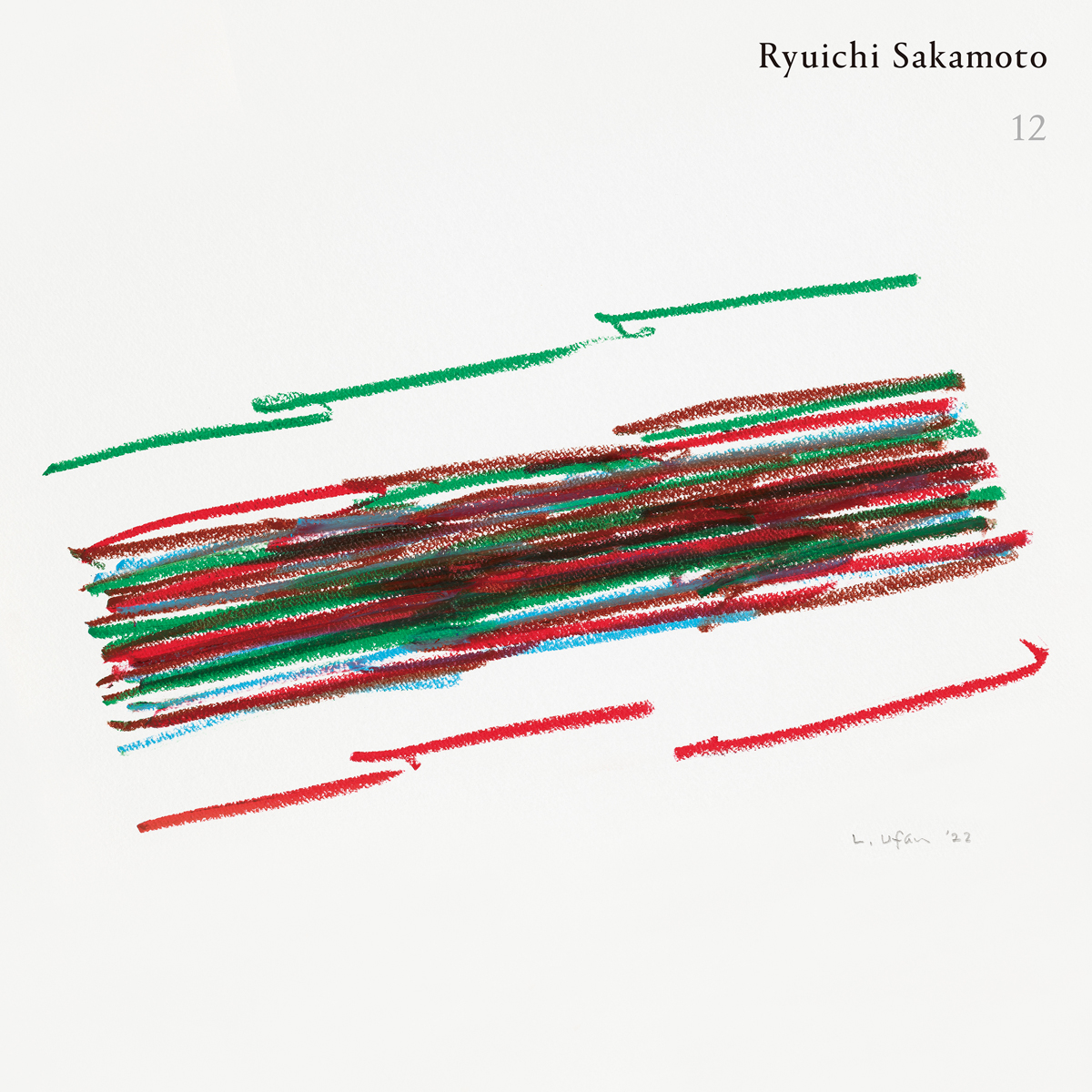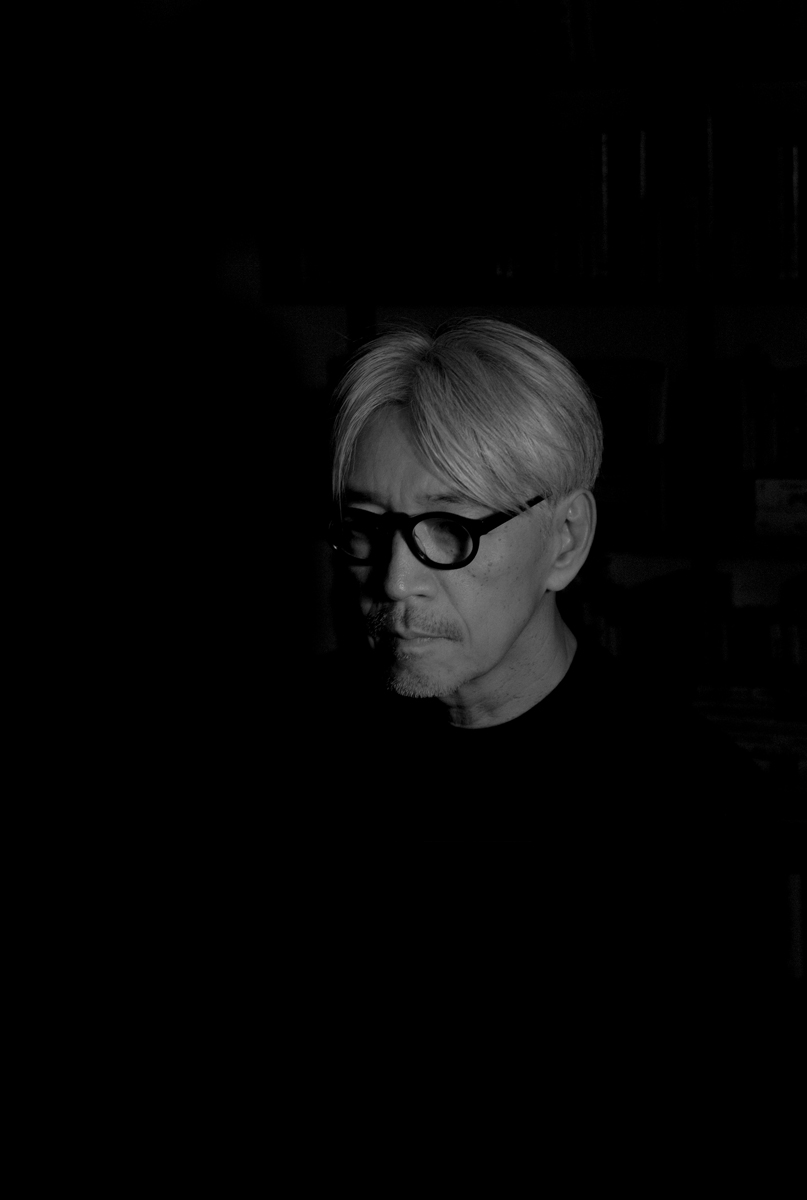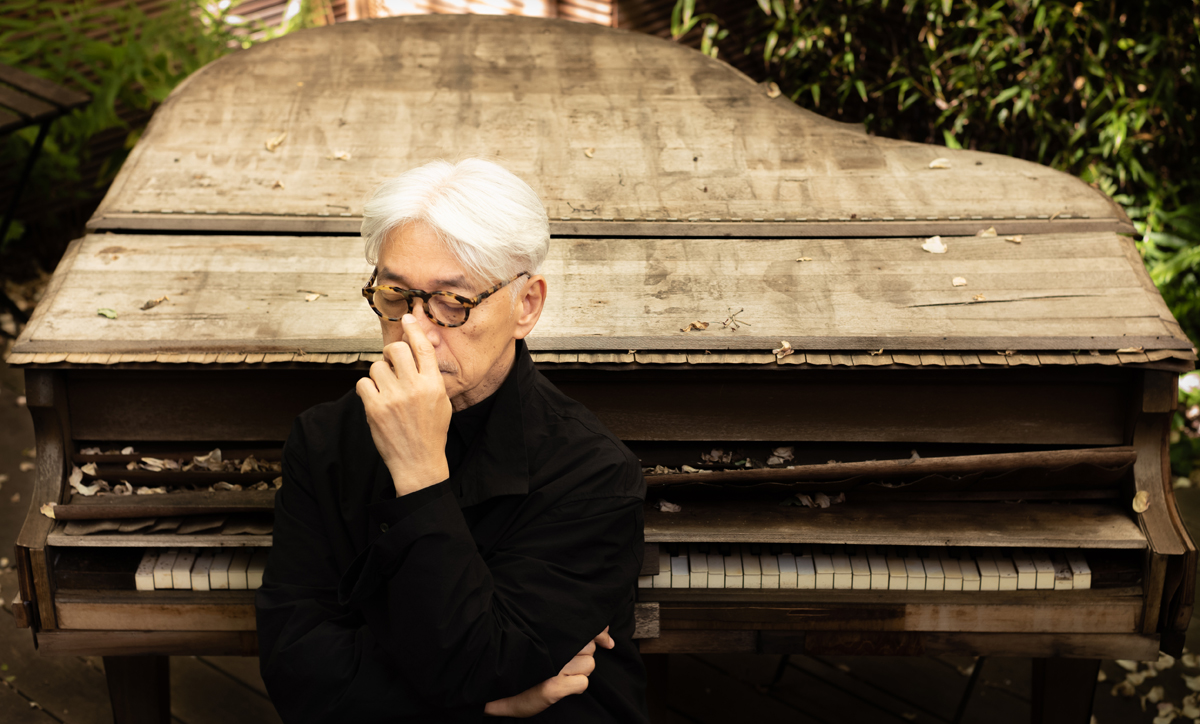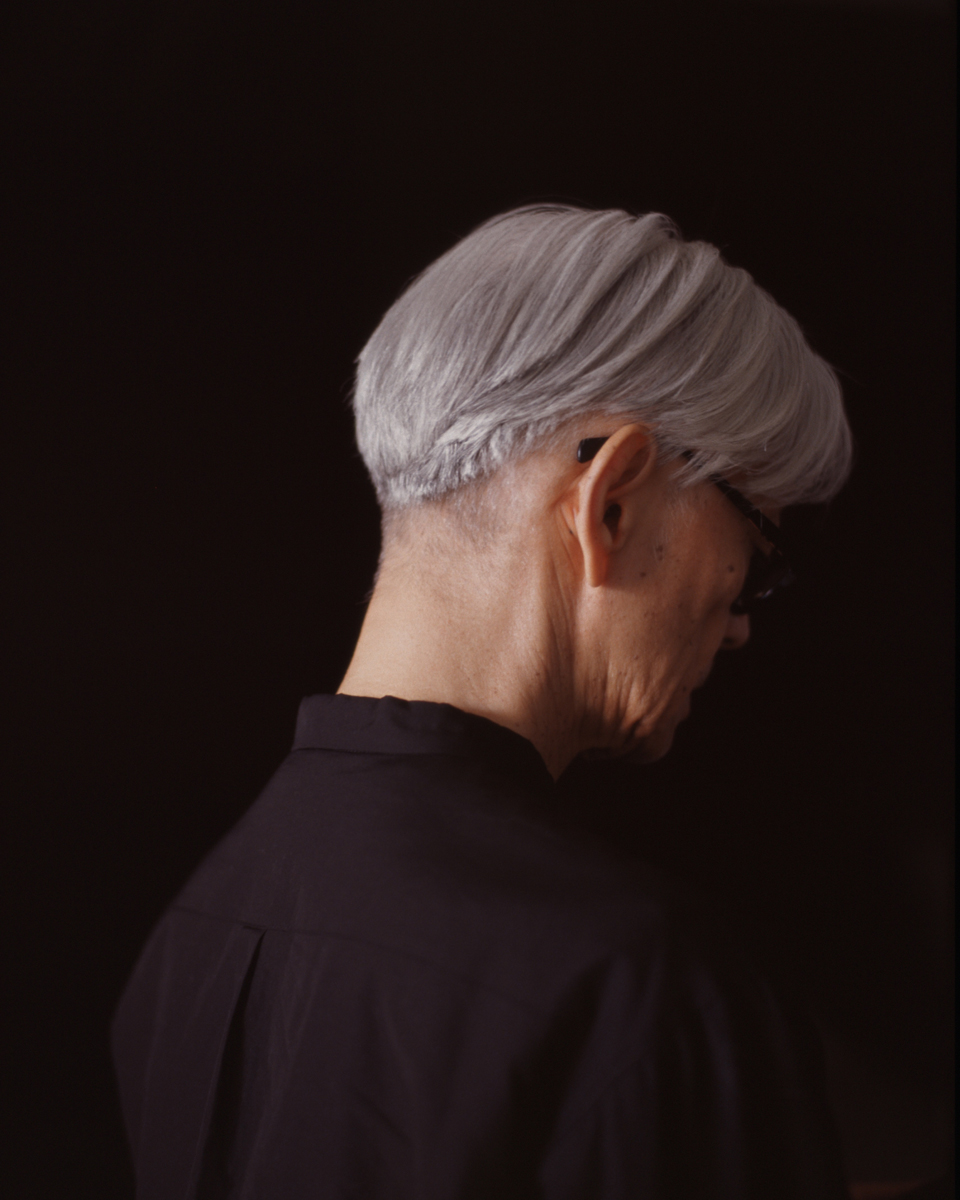 Geeta Dayal
Geeta Dayal
A recently released album by the pioneering cofounder of Yellow Magic Orchestra marks the composer’s seventy-first birthday.

12 album cover art: Lee Ufan.
12, by Ryuichi Sakamoto, Milan Records
• • •
Ryuichi Sakamoto, the famed composer and cofounder of the trailblazing Japanese synth-pop supergroup Yellow Magic Orchestra, announced last year that he now has stage 4 cancer. He delivered his prognosis in the first of a series of columns for the Tokyo-based literary magazine Shincho, revealing that he had recently undergone surgery to remove tumors that had spread to both of his lungs. In December, he broadcast a solo piano performance—edited together from numerous prerecorded takes, as he has said that he does not have the energy to play live—which was rumored to be his last. This month, he lost one of his oldest friends: his former YMO bandmate Yukihiro Takahashi passed away at the age of seventy.

Ryuichi Sakamoto. Photo: Zakkubalan.
A spare, beautiful new album of ambient music, 12, was released on January 17, Sakamoto’s seventy-first birthday. Its cover, by noted Korean artist Lee Ufan, is a series of intermingled red, blue, and green lines keening hopefully upward. 12 is an audio document of the past two years of Sakamoto’s life, composed in temporary housing while he was recovering from an operation. The twelve tracks, for the most part, have functional titles: the dates on which they were made. This is mainly solo keyboard music, familiar terrain for Sakamoto, who has worked with solo piano for several decades. “My background is in classical—Stravinsky, Bartok, all that,” he said when I interviewed him in 2006, in a stylish but empty cafe in Manhattan (Sakamoto, hilariously, kept his sunglasses on indoors for the entire three-hour conversation). “I studied in a conservatory. I knew harmony, counterpoint, how to write a sonata, a fugue, all of that. My nickname in YMO was ‘Professor.’ ” But he wasn’t locked into classical; he looked far beyond it. His mother introduced him to avant-garde music, by the likes of John Cage and Iannis Xenakis, at a young age. He was captivated by art. “When I was fourteen or fifteen, I was into Pop art, Conceptual art, Warhol, and everybody. Nam June Paik was my hero,” he told me. At college, in Tokyo in the early 1970s, he encountered synthesizers, which would come to define his future direction in YMO.
Sakamoto’s sprawling body of work, which spans forty-five years, has evolved dramatically, growing steadily more minimal as it has progressed. In the 1970s and 1980s, his music was colorful and over the top, beginning with the ecstatic electro-disco symphonies of YMO, to romantic film scores like Merry Christmas, Mr. Lawrence (1983) and The Last Emperor (1987), and the wide-ranging world-pop of solo albums like Esperanto (1985) and Neo Geo (1987), which feature a wild assortment of musical guests, including Iggy Pop and Bootsy Collins. The 1990s were similarly all over the map. By the early 2000s, though, Sakamoto seemed less interested in being a pop star and more intrigued by experimental collaborations with the artists and composers Christian Fennesz and Carsten Nicolai. He made music on his laptop and worked on getting in tune with nature. “I played laptop and improvised in this Japanese garden in Kyoto, at this temple at 7:30 at night, with the frogs singing,” he said in 2006. “They interacted with the sound I played. Jamming with nature is really amazing.” After his first cancer diagnosis in 2014, he continued working on film scores, notably The Revenant in 2015, and released an album in 2017 called async. In 2021, he unveiled an opera with the artist Shiro Takatani called Time.

Ryuichi Sakamoto. Photo: Zakkubalan.
For 12, Sakamoto would jam on a synthesizer in between hospital visits, recording his improvisations. The mood of many of the songs is understandably pensive and melancholy. “20220202” has an ominous undertow, with low-pitched, serrated synth sounds lending a dark, uneasy sensation. “20220302” is full of delicate keyboard clusters, and while it is elegant and pretty to listen to, the overall emotional state is one of sorrow. “20211201” has a churchlike stillness, an aura of solemnity and quietude reminiscent of Brian Eno’s Music for Airports. The track “20220123” has the peaceful, meditative ambience of a snowy winter morning, as piano figures cascade over white noise that sounds like the distant roar of gusting winds. The solo keyboard on 12 feels very austere, much more so than on async. While somber, that album was rich in sonic information, featuring samples of vocalists, field recordings, denser instrumentation, and a complex conceptual apparatus that referenced Andrei Tarkovsky and quantum physics. 12, meanwhile, comes with little explanation, reducing any extraneous data to a bare minimum. The music has a radiant, crystalline purity akin to Erik Satie. Listening to 12, one cannot help but be struck by this deep expression of Sakamoto’s pain, of his human frailty, strength, and uncertainty about the future.

Ryuichi Sakamoto. Photo: Zakkubalan.
The last time I saw Sakamoto in person was in 2012, standing in the front row at a Kraftwerk concert at MoMA. He looked handsome and distinguished in a gray blazer and appeared to be having the time of his life. As Kraftwerk launched into the tune “Europe Endless,” he was bobbing his head, bouncing up and down in time with the beat. That is the image I will always have of Sakamoto—of a man who loves music with all his being.
Geeta Dayal is an arts critic and journalist specializing in twentieth-century music, culture, and technology. She has written extensively for frieze and many other publications, including the Guardian, Wired, the Wire, Bookforum, Slate, the Boston Globe, and Rolling Stone. She is the author of Another Green World, a book on Brian Eno (Bloomsbury, 2009), and is currently at work on a new book on music.